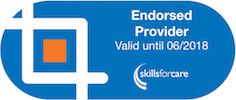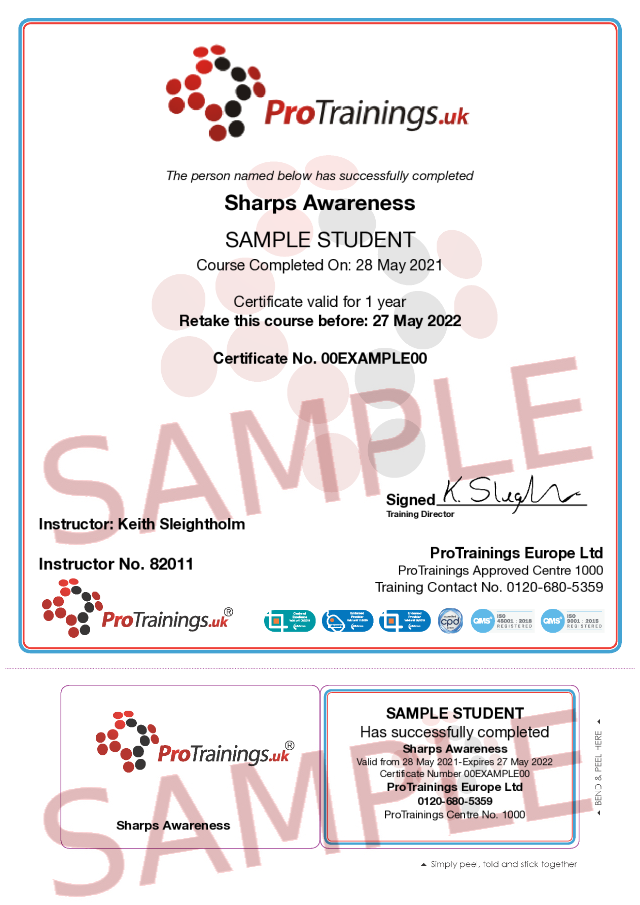Introduction to Sharps Awareness that is CPD Approved


IF YOU ARE INTERESTED IN THIS NEW 100% ONLINE COURSE - PHONE US AS YOU CANNOT BUY ONLINE YET
We have been recognised as an endorsed provider from Skills for Care, earning the prestigious distinction as a Centre of Excellence within training and health & social care.
There is a common misconception that sharps injuries are only of concern to medical and care staff. However, it is not uncommon for people in other industries such as waste disposal to come into contact with used sharps.
In this course we'll start by looking at some statistics relating to discarded needles, then define 'sharps' and look at the different types that can be found in 'sharps litter', ranging from needles, syringes and scalpel blades to broken glass, knives, scissors and nails. It then covers the primary and secondary risks from sharps. It'll look at the responsibilities of employers and how they must use risk assessment to ensure workers safety, as much as possible. Then, the course will take a detailed look at Hepatitis B, Hepatitis C, HIV and Tetanus.
There'll be a section on the Chain of Infection, helping you to understand how an infection gets passed on, and what steps can be taken to break the chain and stop the process. It'll look at the probability of picking up an infection from a needlestick injury, and the factors that can affect this. It's important to always handle discarded sharps safely so the course will take you through the equipment you need, including litter pickers, forceps, disinfectant sprays and gloves, along with the correct techniques you should employ to avoid injury. This subject will be further expanded on by detailing the correct sharps handling procedures, including how to dispose of discarded sharps safely, how to remove disposable gloves to minimise cross-contamination, and correct hand washing procedures.
Finally, it'll cover how to report discarded sharps and the correct procedures to follow if you're unlucky enough to receive a sharps injury. Knowledge of the dangers associated with sharps, safe handling techniques and use of appropriate PPE will help you to protect yourself from the dangers.
The content of this and all our courses has been independently certified as conforming to universally accepted Continuous Professional Development (CPD) guidelines and come with a Certified CPD Statement as well as a ProTrainings Certificate and for online courses an Evidence Based Learning statement.






